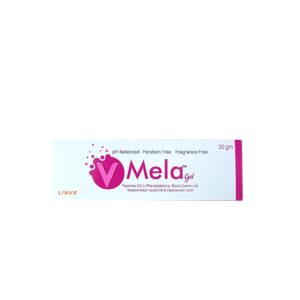L-PHENYALANINE + HYALURONIC ACID + PIPERINE
L-Phenyalanine: L-Phenyalanine is an essential amino acid that is naturally found in protein-rich foods such as meat, fish, dairy products, and legumes. It can also be synthesized in a laboratory.
L-Phenyalanine is commonly used as a dietary supplement and is believed to have several potential benefits. It is often used to promote the production of various neurotransmitters, including dopamine, norepinephrine, and epinephrine, which are involved in mood regulation and mental alertness. It is also thought to have pain-relieving properties and may be used as a supplement for conditions such as chronic pain and arthritis. Additionally, L-Phenyalanine is sometimes used to support weight loss and enhance athletic performance.
The exact mechanism of action of L-Phenyalanine is not fully understood. However, once ingested, it is converted to L-Tyrosine, another amino acid, which is then further converted to dopamine, norepinephrine, and epinephrine. These neurotransmitters play a crucial role in regulating mood, motivation, and cognition.
The typical dosage of L-Phenyalanine can vary depending on the specific condition being treated. It is recommended to start with a low dosage and gradually increase if needed. The usual dosage range is between 500 mg and 1500 mg per day.
L-Phenyalanine is generally considered safe for most people when taken in appropriate dosages. However, there are some potential side effects that can occur, including nausea, heartburn, headaches, and high blood pressure. In rare cases, it may cause an allergic reaction, which requires immediate medical attention. It is important to consult with a healthcare professional before starting any new dietary supplement to determine the correct dosage and ensure it is safe for your specific circumstances.
It is worth mentioning that L-Phenylalanine should be avoided by individuals with a genetic condition called phenylketonuria (PKU). Individuals with PKU cannot properly process phenylalanine and need to follow a strict diet that restricts its intake.
Hyaluronic Acid: Hyaluronic Acid (HA) is a naturally occurring substance found in the human body, particularly in connective tissues, joints, and skin. It is a popular ingredient in skincare products and is also used as a medical treatment.
Use:
In skincare, Hyaluronic Acid is used for its hydrating and moisturizing properties. It helps retain water in the skin, making it appear plumper and reducing the appearance of wrinkles and fine lines. It is often used in serums, creams, and dermal fillers to improve skin texture and elasticity.
In medical treatments, Hyaluronic Acid is mainly used in joint disorders such as osteoarthritis. It is injected into the affected joint to provide lubrication and cushioning, reducing pain and improving mobility.
Mechanism of action:
Hyaluronic Acid works by binding to water molecules, creating a gel-like substance that adds volume and moisture to the skin or joint. It helps retain moisture and provides lubrication, which improves the function of the joints and promotes healthier skin.
Dose:
In skincare products, the concentration and dose of Hyaluronic Acid vary. It is typically applied topically onto the skin in the form of creams, serums, or masks. Medical treatments involving Hyaluronic Acid injections into joints are generally administered by healthcare professionals. The specific dose depends on the individual patient and the severity of the condition being treated.
Side effects:
Hyaluronic Acid is generally considered safe for most individuals. In skincare products, side effects are minimal and rare, but they may include skin irritation or allergic reactions.
In medical treatments, side effects can include temporary pain, swelling, or redness at the injection site. In rare cases, allergic reactions or infections may occur. As with any medical treatment, it is essential to discuss potential risks and side effects with a healthcare professional before undergoing Hyaluronic Acid injections.
It is worth noting that individual responses to Hyaluronic Acid may vary, and it is always advisable to follow the recommended dosage and usage instructions provided by the manufacturer or medical professional.
Piperine: Piperine is an active compound found in black pepper, which is widely used as a spice in various cuisines. It is also available as a dietary supplement.
Use: Piperine is primarily used as a bioavailability enhancer, meaning it helps increase the absorption and effectiveness of other nutrients and drugs in the body. It is commonly used in combination with other supplements or medications to enhance their absorption and therapeutic effects. Additionally, piperine has anti-inflammatory, antioxidant, and anticancer properties, although further research is needed to fully understand its potential benefits in these areas.
Mechanism of Action: Piperine works by inhibiting various enzymes that are involved in drug metabolism, such as cytochrome P450 enzymes. By inhibiting these enzymes, piperine can increase the bioavailability of drugs and nutrients by slowing down their metabolism and prolonging their presence in the body.
Dose: The recommended dosage of piperine can vary depending on the product and the purpose of use. However, typical doses range from 5 mg to 20 mg, taken once or twice daily. It is important to follow the instructions provided by the manufacturer or consult a healthcare professional before starting any supplementation.
Side Effects: Piperine is generally considered safe when used in recommended doses. However, high doses or prolonged use may cause gastrointestinal discomfort, such as stomach upset, diarrhea, or heartburn. Piperine may also interact with certain medications, so it is important to consult a healthcare professional before using piperine, especially if you are taking any other medications or have any underlying medical conditions.
As with any supplement or medication, it is recommended to consult a healthcare professional before starting piperine supplementation to ensure its safe and appropriate use.

